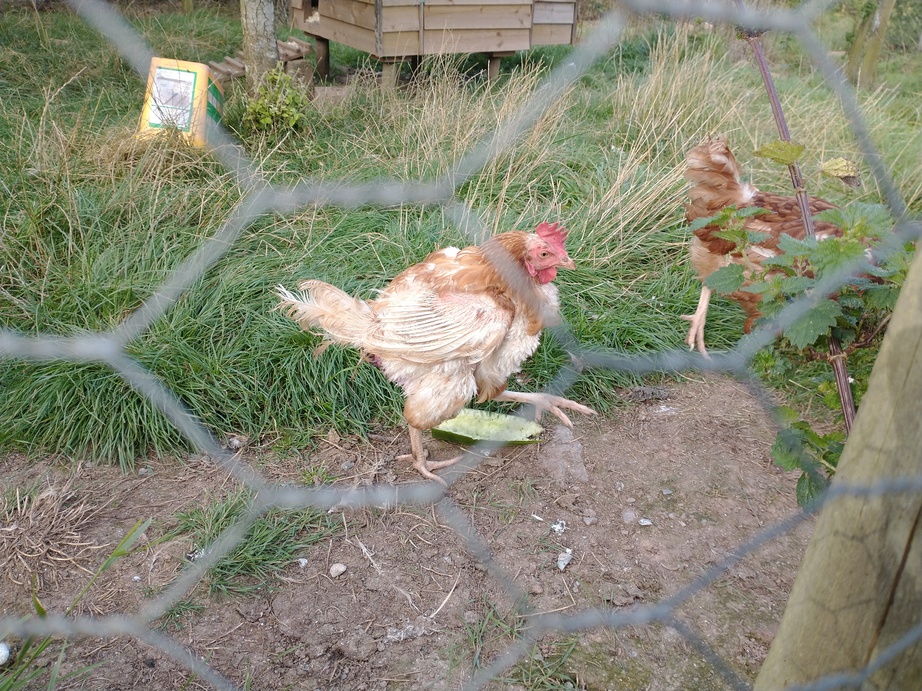- Joined
- Oct 23, 2012
- Messages
- 2,189
- Reaction score
- 985
- Location
- Croatia
- Hive Type
- Langstroth
- Number of Hives
- 43
Watermelons.. I feel like I am a balloon.. Fresh picked and cooled, sweet as honey.. My favorite fruit..

You lucky person. I love them but they don't generally from well in this countryWatermelons.. I feel like I am a balloon.. Fresh picked and cooled, sweet as honey.. My favorite fruit..









FailedTesting
Had a problem with my PC after some updates.. Sorted now, I hope..Failed
That's a pity with the green spuds ... I had a couple of green ones that had poked out of the top of compost in the bags I grow them in .. not much you can do once they have gone green. I put a kilo of Charlottes into the bags for new potatoes at Christmas a couple of weeks ago and they are already ready for earthing up. They tend to be on the small side when they are ready to harvest in December but a few new potatoes with cold cuts at New year is a real treat.A couple of photos I took up the allotment this pm.. One shows how tall the sprout plants are this year. The other photo shows what sometimes happens if you don't earth up spuds. The leaf growth of the plant was so dense I could not see underneath the leaves. Whilst lifting the Nicola spuds I noticed there were the occasional "runners" in the soil with potatoes growing on them. I have seen this before.

It is difficult for a product made from eggs to specify that the origin is organic since the product would be more expensive, the difference between an organic egg and a conventional caged egg is great.Thanks to a visiting fox some months back we're somewhat short of laying hens at the moment, so at the weekend my wife collected some "rescue" hens that are considered to be at the end of their useful life by a commercial free-range egg operation. This is one. It makes me feel sick that someone could allow an animal to end up in this state. If we ever can't keep our own hens in the future I will be trying to avoid as much food as possible that contains commercially-produced eggs.

James
and those are probably the free range onesThanks to a visiting fox some months back we're somewhat short of laying hens at the moment, so at the weekend my wife collected some "rescue" hens that are considered to be at the end of their useful life by a commercial free-range egg operation. This is one. It makes me feel sick that someone could allow an animal to end up in this state.
did anyone mention organic?It is difficult for a product made from eggs to specify that the origin is organic since the product would be more expensive, the difference between an organic egg and a conventional caged egg is great.
did anyone mention organic?
We've always had some rescue hens...its wonderful when you see them inspecting grass and wondering what it is. They are alwsys very biddable and docile..once they have settled in they become really friendly. Their feathers rapidly grow back and in no time they revert to real hens. We usually get a couple of good years of laying put of them and presumably because they have been treated for just about any hem disease they rarely get sick. If they last the first couple of weeks when pecking order is established they are tough as old boots.

I wouldn't fret - that one, as I said is probably a 'free range', or at worst a barn hen and doesn't look bad at all - I've had rescues in a heck of a worse state than that and within 48 hours the were mucking in with the others and having a rare old time.I'm hoping they'll all recover, but that one I'm really not sure about.
Those rescues look in pretty good nick James. We have been having them for the last 15 years and some of our girls wouldn’t have looked out if place on a chiller shelf in Sainsbury’s!Thanks to a visiting fox some months back we're somewhat short of laying hens at the moment, so at the weekend my wife collected some "rescue" hens that are considered to be at the end of their useful life by a commercial free-range egg operation. This is one. It makes me feel sick that someone could allow an animal to end up in this state. If we ever can't keep our own hens in the future I will be trying to avoid as much food as possible that contains commercially-produced eggs.

James